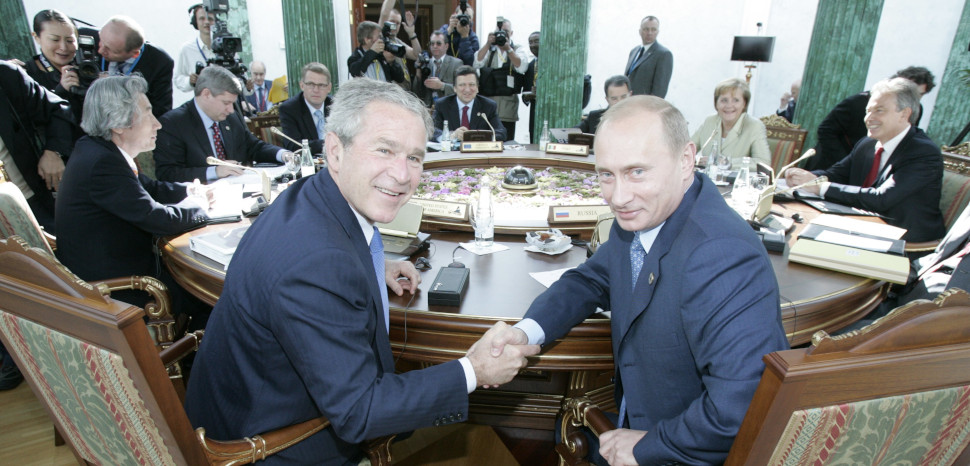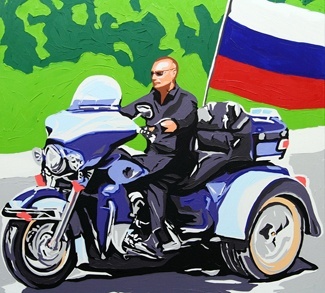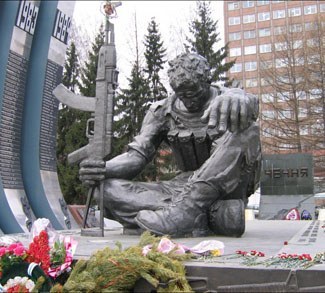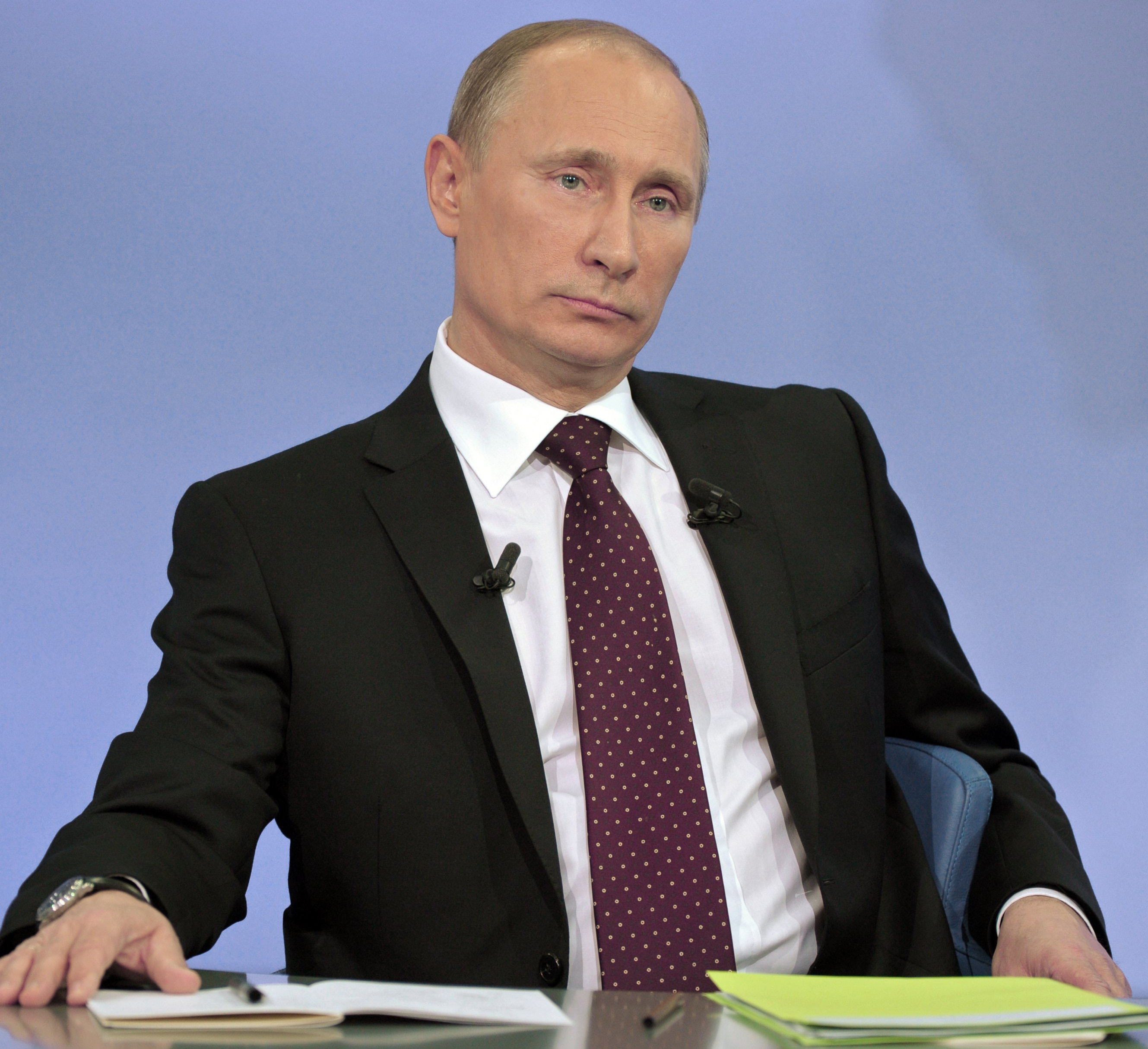As the war in Ukraine entered its third year, French President Emmanuel Macron gave in March a television interview that looked deep down into the state of West-Russia relations. Underlining the existential meaning of the war for France and Europe, Macron stressed that a Ukrainian defeat would jeopardize the stability of European security.
Macron signaled readiness to do everything to ensure that Russia cannot win the war—including sending troops. The French President’s statements were largely representative of the current situation between NATO countries and Russia. That Russia must not win the war has become a repeated phrase. This suggests a zero-sum mindset where gains for one side equate to losses for the other.
Accordingly, a Russian victory would not only endanger the survival of Ukraine but also precipitate an incalculable loss of security for the West since there could be no certainty about President Putin’s strategic objectives. Western observers argue that losing Ukraine could drag NATO into a permanent state of war in Europe. Since the outbreak of war in 2022, the Western debate has focused on supporting Ukraine against the perceived Russian aggression.
NATO chief Jens Stoltenberg said that “support from NATO Allies and support from the United States to Ukraine is something which benefits our own security interests.” Likewise, German Chancellor Olaf Scholz stressed that continuing support for Ukraine is “necessary for us, for our security.”
As Stuart Gottlieb observes, this conflict is not just any war—it is a European conflict with the potential to damage the post-Cold War security order. This order is characterized by the West’s unrivaled position to shape security in Europe. The unwavering political support for Ukraine, upholding economic sanctions on Russia, and the continuing provision of military hardware are, therefore, of utmost importance.
Western countries aim to thwart Russia’s objectives, which include achieving “regime change” in Kyiv, seizing Ukrainian territory, and dictating the terms of a ceasefire. However, President Putin made clear that “Russia would never be forced to abandon the gains it had made” and simply discard the “new realities” on the ground—not least because Putin’s legacy is intertwined with the war.
While zero-sum dynamics dominate Western-Russia relations in Ukraine, it is essential to understand their origins and implications for European security. This article suggests that these dynamics are embedded in hierarchical relations between Russia and the West post-Cold War. Hierarchies are a mundane aspect of spheres of social life. They are also fundamental to global politics, as David A. Lake argues, and offer a conceptual lens to understand Western-Russia relations.
Conceptualizing Hierarchy
Hierarchy as a concept helps to visualize that states are ranked by historically accumulated forms of power such as a powerful military, flourishing economy, or valuable technological knowledge. This power improves their hierarchical standing and shapes the strategies of statesmen within international arenas.
Vincent Pouliot’s study of NATO-Russia diplomacy suggests that international politics is influenced by power disparities. Transferred to the international system of states, relations become characterized by the sway that powerful states hold over subordinate ones, resulting in the formation of order. For instance, due to its vast power, the United States largely dominated post-Cold War international affairs.
However, “domination” does not necessarily carry the negative connotation that is often attributed to it. Instead, it refers to the recognized authority to establish and uphold the rules governing international arenas, which states must adhere to ensure their functionality. By way of domination, order and rules become self-evident aspects of international life.
The US-led “rule-based international order” is a case in point. It has widely been accepted throughout the Global North and parts of the Global South. Nowadays, international law matters to countries like China. International organizations such as the United Nations have thereby been entrusted with fostering the acceptance of democratic standards internationally such as human rights.
Nonetheless, a state of contestation can drive zero-sum mentalities, especially where the grip of institutions diminishes and orders become questioned. Challengers accumulate power to revise the terms of existing relations, while powerful states seek to reassert their authority to determine the conditions and conduct of international politics.
For instance, believing in stockpiles of weapons of mass destruction, President George W. Bush justified the 2003 Iraq intervention with the elimination of Hussein’s threat to international security, the reinstitution of the United Nation’s authority, and the spread of “liberty and peace in that region.”
From Anarchy to Hierarchy
Following the Cold War, Western-Russian relations shifted from the international context of anarchy to one of hierarchy.
Analyzing the root causes of World War I, G. Lowes Dickinson wrote in 1916 that “the causes of this war, and of all wars, lie so deep in the whole international system.” In the absence of a regulatory authority, state relations are viewed as existing in a state of anarchy.
In such an environment, preventing states from maximizing their power at each other’s expense becomes crucial for survival. As relations in the international system are fraught with fear and mutual suspicion, adopting a zero-sum game mindset becomes necessary to ensure self-preservation.
After World War II, the victorious powers sought to mitigate anarchy. The United States spearheaded the “liberal international order,” championing liberal-democratic norms and multilateral institutions to reorganize international politics. This order institutionalized a newfound trust among Western states in security organizations like NATO, indicating that international relations have the potential to transcend anarchy, as Rebecca Adler-Nissen suggests.
However, anarchical relations persisted regarding the Soviets. The Cuban missile crisis in 1962 or the nuclear missiles warning system incident in 1983 speak volumes. Back then, the zero-sum game between the two sides was framed around advantages through a military and technological arms race. Both focused on strategic deterrence which gridlocked them in a bipolar stalemate. An example is the deployment of Soviet SS-20 missiles and NATO’s “twin-track” decision in the late 1970s.
After the Cold War, the dynamics between the adversaries underwent a shift, however. The United States remained the only superpower in the international system. Significant power disparities reorganized their relations hierarchically, leading to a redistribution of authority that favored the United States. Security maximization was no longer a primary objective. This gave rise to strategies focused on preserving the authority to shape European security and deciding who had a say in it. For example, the 1992 “Wolfowitz doctrine” expressed the American intent to remain in control of Europe’s security and to prevent the emergence of new rivals.
The shift was partly enabled by the success of liberal democracy. It also happened because Russian power became estimable and ranked the country within an international pecking order. As former Secretary of State, Condoleezza Rice, noted, “By the time George H. W. Bush came to power, the Soviet Union was a spent force.” In 2014, President Obama called Russia a “regional power,” mirroring prevailing perceptions about Russia’s geopolitical rank.
The focus on power underscores that post-Cold War interactions between Russia and the West unfolded in the context of an international hierarchy. Economic reconstruction during the 1990s precipitated the downturn of the post-Soviet economy, leading to hyperinflation, corruption, and poverty.
Despite Vladimir Putin’s emphasis on both domestic and military reforms since the early 2000s, the path toward recovery has been difficult. Russia has encountered significant obstacles, including a decline in demographics, insufficient investment in education, and the failure to diversify the economy or stimulate technological progress.
West-Russia Relations after the Cold War
After 1991, Russia faced Western expansion but largely operated within a Western-dominated security order that tempered zero-sum dynamics.
The United States’ promotion of “democratic peace” through organizations like NATO or the World Bank, known as “liberal internationalism,” aimed at spreading the rule of law and supporting democratic reforms beyond Western Europe. This underpinned a strong Western position in European security, justified the relevance of liberal institutions, and established a framework for organizing security across Europe.
To ensure its success, new rules governing the relations between Russia and the West in European security had to be established. One aspect was the unconstrained expansion of Western values and institutions. Another one was granting Russia a voice but no vote in European security. As a senior NATO official stressed, “We are listening to Russian concerns. There is, however, no question of giving Russia—or anyone else—a veto over NATO decisions.”
NATO’s enlargement project exemplifies this. Amidst concerns of a resurgent Russia, many former Soviet satellites sought integration with the West, advocating for NATO and European Union membership. Liberal values enjoyed appeal among people formerly living under communist rule, thereby strengthening Western legitimacy and authority beyond European security.
Consequently, NATO inaugurated in 1994 the still relevant “open door policy” which enabled NATO to enlarge eastwards in five consecutive waves. This policy roots the idea that countries meeting the Alliance’s criteria are eligible for membership. Newly admitted states should strengthen NATO and support a security system based on shared democratic identities.
Similarly, NATO’s first out-of-area intervention in the Bosnian war in 1995 marked the beginning of significant military operations in Kosovo, Afghanistan, and Libya. These operations, underpinned by a strong humanitarian cause, engaged numerous state and non-state actors. Two decades after the Cold War it seemed that military interventions for the greater human good had become a norm in international relations.
Despite Russia’s objections to the increasing out-of-area activism of NATO, it had to acknowledge that it lacked the power to halt it. Russia’s acquiescence to participate in NATO’s Balkans operations and its cooperation with the United States during the “War on Terror” reinforced its place in a European security order largely dominated by Western allies. As this became taken for granted, NATO decided to present Ukraine and Georgia with a membership perspective at its 2008 Bucharest summit.
It however changed the dynamics between both sides. It became a catalyst for Russia to reconsider its subordinate role in European security. That Vladimir Putin attacked U.S. dominance at the 2007 Munich Security Conference, along with the 2008 intervention in Georgia, can be interpreted as the discontent with the way European security worked.
The Russo-Ukraine War and European Security
After 2010, Ukraine emerged as the central ground for a struggle between Russia and the West over the rules of European security. The Russo-Ukrainian war is its latest manifestation, marked by a tug-of-war over Ukraine’s allegiances and heightened zero-sum dynamics.
Shortly before its signing, Ukraine suspended a trade and political association with the European Union in November 2013, opting instead to pivot towards Russia. The following Maidan protests, which Russia denounced as a Western coup, and the resignation of Ukrainian President Yanukovych in February 2014, were answered by the incorporation of Crimea into the Russian Federation in March. With this, Russia wanted to regain influence over Ukraine after Yanukovych’s ouster.
Diplomacy could not halt the ensuing conflict between Ukrainian government forces and pro-Russian separatists in Ukraine’s Donbas region. Although the Minsk agreements addressed the resolution of violence, they did not calm Russian apprehensions about the advance of Western institutions and Ukraine’s path to NATO membership.
Instead, as former German Chancellor Angela Merkel emphasized, the agreements “helped buy Kyiv time to arm itself better against the Russian military.” This became a central justification for Russia to support the separatists and to link Ukraine’s future to NATO enlargement.
Following Russia’s deployment to Ukraine’s border in February 2022, NATO Secretary-General Jens Stoltenberg invoked the rules of post-Cold War security. He wrote:
“We cannot turn the clock back to an age dominated by great powers’ spheres of influence, when large countries could tell smaller neighbours what they can do […] No country should use force, or the threat of force, to redraw borders, upend Europe’s security architecture and rewrite the international rule book.”
With the outbreak of war, the West’s ability to guarantee these rules while keeping Russia out of its decisions became shaky. The war in Ukraine came with profound implications for the further evolution of geopolitical spheres. A Russian victory could rewrite the rules of European security and permanently halt the advance of Western institutions along Russia’s southern border. Russia is therefore perceived as “a power of regional destabilization.”
However, NATO’s history of post-Cold War enlargement and its commitment to Ukraine’s membership have created obligations that NATO members cannot disregard. Ignoring them would undermine NATO’s norms and jeopardize its relevance in international affairs. Stoltenberg’s reaffirmation of Ukraine’s “irreversible path towards NATO membership” thus served to bolster NATO’s international role and internal cohesion by excluding diplomatic avenues with Russia.
Conversely, challenging the Western rule-making authority, including NATO’s “open door”, and gaining acceptance for new rules has become a Russian priority. The list of demands, issued by Russia in December 2021 and requiring the reversal of NATO enlargement, underpins this.
Russia seeks to counter liberal internationalism through civilizational claims that are rooted in historic religious and ethnic affiliations with its periphery. While such claims were occluded by the ideological conflict between the superpowers during the Cold War, they partly resurfaced after 1990 in the former Soviet sphere. In Russia, this resurgence interacted with the trend of increasing defense spending after 2005.
Notably, Russian ideologist Alexander Dugin advocates the consolidation of the post-Soviet space through the integration of various “ethnoses” based on common cultural, linguistic, and social identities. These civilizational ideas have appeared in Russia’s latest foreign policy concept and in the Russo-Ukrainian war. They support Russian leadership claims by stressing the unity of peoples over the Western emphasis on democratic forms of government.
It has become clear that Russia seeks to become a new rule setter vis-à-vis the West. It aims to render civilizational claims for the conduct of international relations legitimate and relevant. A defeat of Russia could curb their proliferation and induce other post-Soviet nations to reject Russia’s alternative geopolitical concept.
Unceasing Dynamics
Given the hierarchical dynamics at play, it is hardly surprising that halting the conflict remains blocked by entrenched positions on both sides. Contrary to anarchical relations, which can result in gridlock, hierarchies are incessantly dynamic and susceptible to conflict.
Zero-sum mindsets are consequential since they touch upon the authority to shape Europe’s security order and set its rules. Central to this authority are competing notions of security. While the West endeavors to establish security by exporting democracy, Russia emphasizes historical and ethnic affiliations. These contrasting systems cannot coexist in Ukraine as they suggest different hierarchical orders and governing principles.
The war is therefore at risk of becoming a “never-ending endgame” much like the Syrian civil war, involving more actors and complex escalation scenarios. Since a vote for Russia in European security is not in the Western playbook, this seems likely— also creating a precedent for Georgia if the current government falls.
Despite the risk of a long-drawn conflict, Ukraine remains a pivotal case, with the potential to upend Europe’s post-Cold War security order. As former British Prime Minister, Boris Johnson recently said, “If Ukraine falls, it will be a catastrophe for the West, it will be the end of Western hegemony.”
The views expressed in this article belong to the author(s) alone and do not necessarily reflect those of Geopoliticalmonitor.com.




